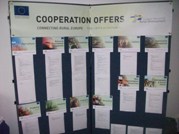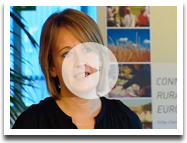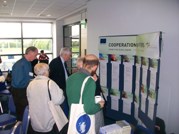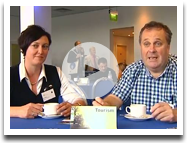TNC Planning
Preparing a cooperation project
Preparing an advertisement to attract potential cooperation partners
The drafting of a ‘cooperation ad’ is very important for the success of this step.
The ad needs to include enough details to help readers understand your main cooperation interests. It should also indicate your willingness to discuss ideas from partners that might help add value to the TNC proposal.
Ideally, the ad should be able to sum up in few short sentences:
- What do you want to gain from the cooperation project; and
- How will this benefit the rural communities, businesses and/or environment in your area? Template for a TNC advertisement
Use different methods to search for a partner
You should use different tools in order to increase your chances of success in searching for your potential partners.
Before starting the search, remember...
- Your cooperation ad should be detailed enough and not too general!
- You should take time to think about the profile of your ‘ideal’ partner!
- A partnership of only two partners is risky, because if one partner decides to quit the project will end. So do not hesitate to make contacts with more than one potential partner in order to increase your chances for success.
Partners search methods:
Databases - your cooperation ad should be advertised in at least one TNC partners search database. The ENRD’s LAG Partner Search Tool should be your first port of call during LAG partner searches since this interactive tool provides a large number of search options using specific rural development categories, in addition to country and regional search opportunities.
Other databases also exist at both European and national levels that may provide further prospects for identifying suitable partners.
Cooperation fairs - participating at European or national cooperation fairs is an excellent way to meet potential partners. A few preparations before the fair will help improve your chances of meeting the right partners.
These include:
-
Before the meeting - write your cooperation ad, have a look at the other cooperation ads, identify potentially interesting cooperation offers, organise a first contact with identified potential partners to plan a cooperation ‘rendezvous’ during the meeting, prepare a presentation of your territory, (using photos, maps, charts etc.);
-
During the meeting - aim to combine meetings with all your potential partners in one ’cooperation rendezvous’; and
-
After the meeting - stay in contact with potential partners regularly during the project development phase. Also keep in touch with groups that do not join the partnership, since they may be useful for future cooperation work.
-
Participation in thematic conferences - is another useful way to meet potential cooperation partners. You will meet rural actors who work on the same topics as you and this can lead to cooperation proposals.
Respond to a cooperation offer
If you are approached by a rural area for the purpose of becoming a project partner, you need to think about several elements before reaching a decision:
- Is the cooperation idea relevant to your cooperation strategy?
- Does the potential partner correspond to your partner profile: similarities? Complementarities?










